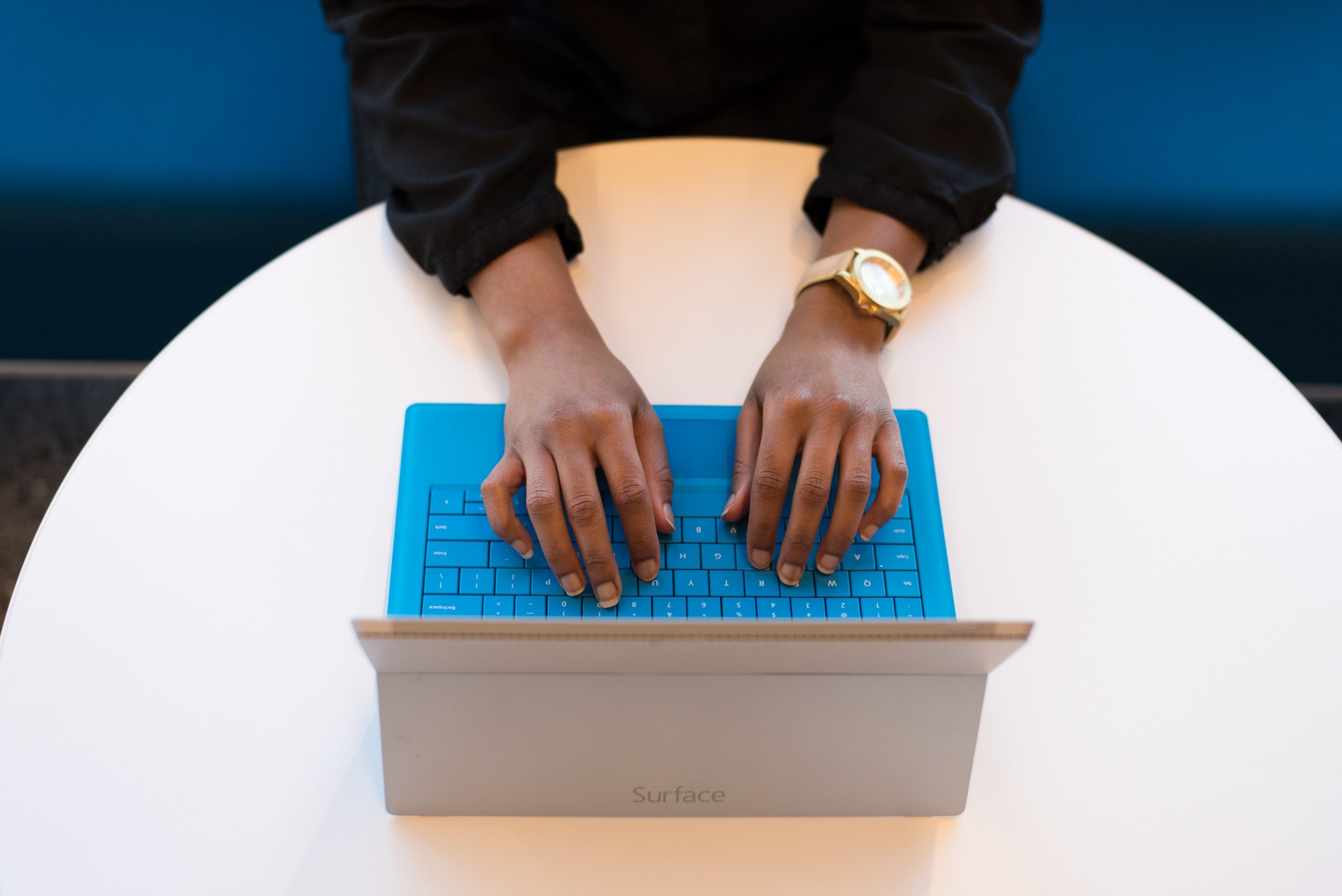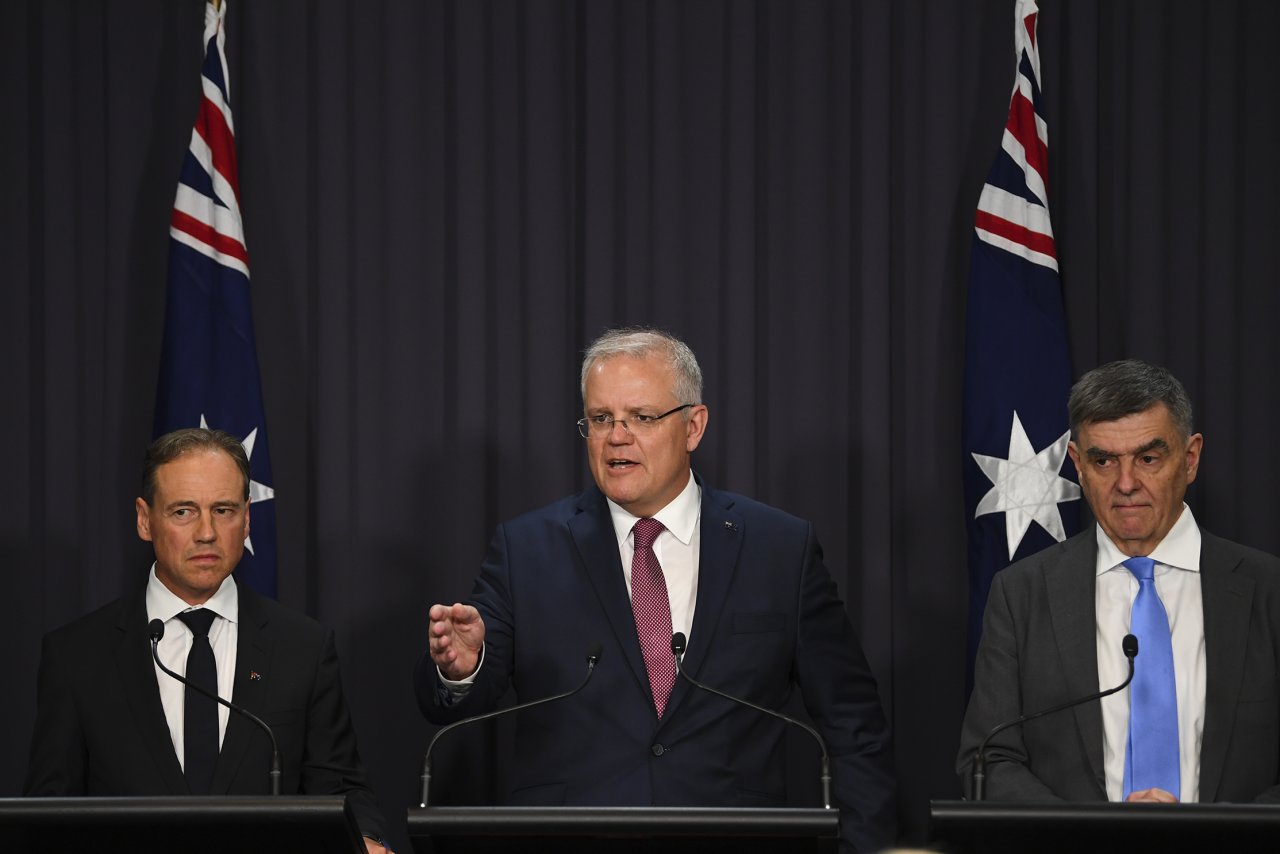
Professor Kim Rubenstein is a legal scholar whose work focuses on active citizenship and gender. She is also co-director of the 50/50 by 2030 Foundation at the University of Canberra and a Fellow of both the Academy of Social Sciences in Australia and the Australian Academy of Law.
In her conversation with podcast host and investigative journalist Ginger Gorman, Kim discusses how gender is playing out in all kinds of surprising ways during the pandemic, from decision-making at a national scale to domestic work on the individual level.
Here’s the six-point TLDR on how this era of history we’re living through now will impact work and home into the future.
1. Women are still missing from the decision-making process.
“We already know that there are a disproportionate number of men as opposed to women in leadership positions. And I think this pandemic has highlighted and emphasised that in a way that should make us feel very concerned. Think back to those original images of government press conferences, there are images of the Prime Minister, Scott Morrison, the Treasurer, Josh Frydenberg, the Health Minister, Greg Hunt, and of course, the Chief Medical Officer, Brendan Murphy. Four white men, who are the image of decision-making and responsibility for the nation. Now, it’s not that they are not necessarily capable, but it just reminds us of the absence of women in that context.”

Health Minister Greg Hunt, Prime Minister Scott Morrison and Australia’s chief medical officer, Professor Brendan Murphy
2. Leadership is gendered and so is work.
“Much of the actual pandemic frontline work is being done by women – for example, teachers and nurses, both caring professions dominated by women. So, they’re doing this brute work and then you’ve got people making the decisions who are not in that cohort. This really emphasises the gendered nature of work in society and how important it is to hear the voices of those individuals; and then to recognise that the impact of COVID is going to be different on those different groups.”
3. But the need for better diversity in representation goes beyond gender…
“It’s not only a question of gender and I think this is really important, it’s ‘gender plus…’. It’s gender plus your socioeconomic background. It’s gender plus your migrantional citizenship background in that formal sense. It’s gender plus your ethnicity. It’s plus the social norms from your experience growing up. They are all different. It’s not that all women experience this in the same way. There are different experiences within those cohorts that need to be represented in parliament. And COVID-19, I think, has really emphasised and amplified that.”
4. Where women are in leadership positions, they are setting an example – for all.
“It’s not that there aren’t women who are leaders. It’s just the proportion of them. But also, how interesting it is when we look at the women who are taking on those roles, and there are recent pieces saying that the countries that are doing the best at the moment are those countries that are led by women. For example, look at our neighbour New Zealand and their leader Jacinda Ardern. She is continually being returned to as the absolutely excellent example of leadership that is different to the existing style of leadership. So, it’s not that we just want women doing what men have been doing before in the same way that men have, but it’s recognising that leadership is gendered as well in the sense that we need a diversity of people’s life experiences to enlarge our sense of thinking about what good leadership is.”
5. We can relate to leaders who wear tracksuits.
In reference to Jacinda Ardern’s extraordinary Facebook live address to the nation from her home where she was wearing a tracksuit and had just put her child to bed: “It’s that connection to the lived experience of others that makes people trust their leaders that they get it, they understand, they’re in the same position. It actually reminds me, returning back to earlier policy decision making, that very classic experience with John Hewson not being able to answer his GST question, which involved being someone who goes and does the shopping and knows the difference in prices. We need people in leadership, who understand the basics of life.”

New Zealand Prime Minister Jacinda Ardern on Facebook
6. The pandemic has enlightened us to the disproportionate responsibilities in the private sphere, and men are talking about it.
“The Head of Austrade in a particular region sent out an email to his male colleagues talking about this very fact and his expectation that all of his male colleagues would be carrying the weight in the domestic sense. I think that a silver lining of COVID-19 would be if we can actually use this period to make sure that other workplaces are recognising openly that it is men’s responsibility as well to be shared carers not only in the home, but outside of the home, too. That will be a positive step.”
 You can listen to the full episode of Seriously Social S1E2 at seriouslysocialpodcast.org.au or on your favourite podcast platform.
You can listen to the full episode of Seriously Social S1E2 at seriouslysocialpodcast.org.au or on your favourite podcast platform.